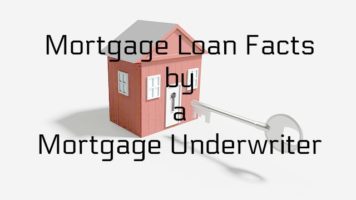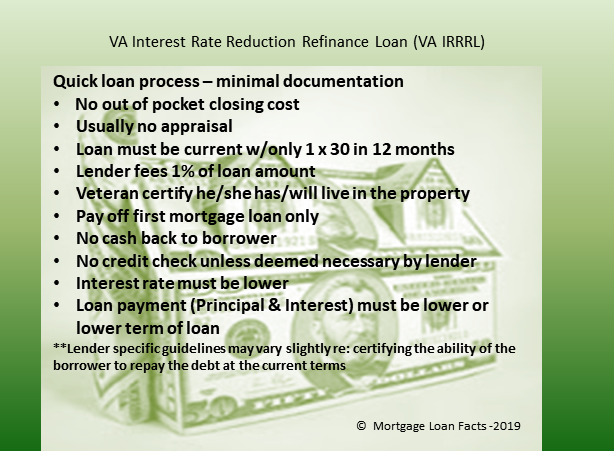What Is An FHA Loan, and who is it for? We will explain the details…keep reading.
FHA is known as Federal Housing Association and these loans are backed by the government corporation- Ginnie Mae. These loans are for those borrowers who are possibly starting out with moderate income, assets, and financial beginnings. If this is you, then this article on FHA loan underwriting guidelines- is for you.
The FHA (Federal Housing Association) insures loans through lenders/banks, brokers, and mortgage companies.
Since this is a government product, we expect the needs of each person to be important. This will give you some facts about what the government does within mortgage lending.
FHA’s Role in Mortgage Lending
As you know, FHA does not actually make mortgage loans. Their role is like a partnership with the lender, which allows the lender to use FHA’s guidelines, and will provide insurance for the loan in case of default. FHA acts the same in the mortgage industry as “the investor,” just like “Freddie” and “Fannie” do on conventional. They also do some FHA loans as well.
They have policies and procedures, which dictate how the loan structure is with the program and all stipulations for the property per their policies and regulations.
Lender Approval Is Required
Lenders must be approved to work with FHA and meet certain criteria to do so. FHA has specific guidelines for origination, underwriting, and property. These rules and regulations are mandatory to allow lenders to keep sending loans to the Federal Housing Association.
There is nothing simple but this is due to the government playing this role in creating a housing market for those within the low to the moderate-income bracket.
FHA Was Organized Back In 1934
FHA began to help those individuals who could not afford conventional lending. They are to serve as a source for those who otherwise would not know homeownership. Subprime loans came after FHA and caused this Country’s financial failure. However, they are less available now (I have read somewhere they are still available).
The difference between FHA and Subprime was staggering as FHA has long since had stricter guidelines as it is a government agency. However, FHA relaxed its rules just like all other lenders did during the Subprime period. FHA approval criterion is easier than conventional financing allowing more individuals to obtain home financing.
FHA Mortgage Insurance (MIP)
Mortgage insurance has always been a requirement but the down payment from the borrower’s own funds is flexible and doable for those without sufficient savings. Seller-paid closing costs or contributions allowable are at 6% greater by 3% of Conventional financing. The credit is more flexible to help younger applicants who have no credit or minimum, buy a home.
What Has Changed About The FHA Loan -What To Expect From This Government Loan
Many aspects of FHA have changed with the many defaulted loans that occurred with all of the Subprime loans. It all filtered over to FNMA (Fannie Mae) and FHLMC (Freddie Mac) as well, that is why the government is now in control of the latter two also.
FHA changed their maximum loan amount to include those borrowers who needed financing for a higher loan amount. Those borrowers who did not have the five (5) percent down payment and needed the seller concession of six (6%). This helped them pick up a lot more borrowers. These borrowers were not necessarily a credit risk but upped their volume and their default level went up.
After the Subprime failures, all investor guidelines had to become structured and revised for fewer defaults. The purpose was to still consider the borrower with fewer assets and less than perfect credit.
Credit Score Changes
As of May 2016
FHA requirements for FICO credit score 580 for a minimum down payment of 3.5%. The lowest score to qualify is 500 to buy a home for insurance from FHA. *Note – As the Lender makes the loan, they usually set their own minimum score. There are some who will apply FHA’s full guidelines. However, to protect themselves from delinquencies, many require a 620 minimum score or higher.
Down Payment Requirements
3.5 percent down payment for those individuals with a credit score above 580. For lower than a 580 score 10% down payment is the guideline.
Applying For An FHA Loan
When you apply for an FHA loan, your entire financial status is reviewed. The automated underwriting system (usually Desk Top Underwriter) takes the input criteria and gives an opinion. This is just as it is done with Conventional loans. The exception is if the lender solely does manual underwriting, and some still do.
The automated underwriting system will pull your credit, and then check what is in the system for assets, employment, and income. The documents are gathered and reviewed by an underwriter who is approved to underwrite loans for FHA.
The FHA Underwriter
After the underwriter evaluates the required documentation, they must make changes from the initial submission when necessary and re-submit. If income, assets, or employment varies from what the application has said, it could cause a different outcome for the loan.
It is important when completing the 1003 application to make sure the information is as accurate as possible. When giving the initial information to the lender it is vital that it matches your documentation.
One factor does not determine approval or denial normally- unless of course, the credit is totally unacceptable.
The Importance of Knowing How Income Is Calculated And Reviewed
- Bi-Monthly is when you are paid twice a month, usually on the 1st and 15th of the month.
- The Bi-Weekly is every other week you receive a paycheck or direct deposit. This amounts to 26 pay periods per year.
- Your income for each pay period by taking either the gross amount of your monthly, bi-monthly, or bi-weekly income accordingly.
- Pay stubs for at least one full month and on occasions 60 days.
Paystub Deductions Are Important
- If you have payroll deductions of alimony, child support, or some amount payable to others it is in your debt to income ratio.
- The pay stub must be dated no more than 30 days prior to application.
- W-2 for the most recent year, and often a two-year period.
- If you have only been on your current job for less than 12 months, you may need to supply previous employment information. *The lender may send the verification of employment form (VOE) if necessary.
- Tax returns are required when receiving commission income, bonuses, tips, expenses, other job-related income or are self-employed. The 1040s for 2 years are normally required if Sole Proprietor. Corporations and S Corporations will require business returns as well.
Asset Requirements
Down payment funds are verified. The lender may send your bank the verification of the deposit form (VOD).
- The normal verification of assets is via 60 days of bank statements.
- If more than one account is for closing – all accounts require bank statements.
- When bank statements indicate large deposits, the source of those funds needs documentation to back up the amounts shown.
- If the funds are from a gift, a gift letter from a family member or your employer may contribute under certain circumstances. Down Payment Assistance from your local government community/county is another option.
- Normally funds are from income, or savings over a period of approximately 60 days.
- When you are using a retirement account, those statements and the terms of withdrawal provide the assertions.
Seller Concessions Still 6%
This allows the borrower to receive help from the seller for the closing cost over and above the 3.5%. This has long been an FHA guideline that has yet to change.
NOTICE: As always, mortgage lending underwriting, etc. rules, and regulations change, almost daily. These are set at the time of this post. They may be updated, by the lender you choose.




Comments are closed.